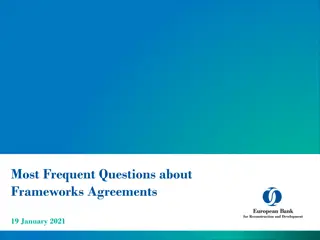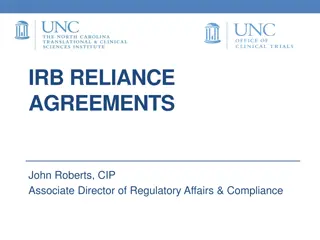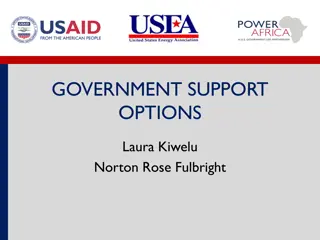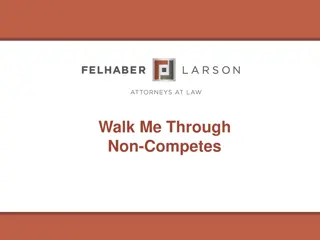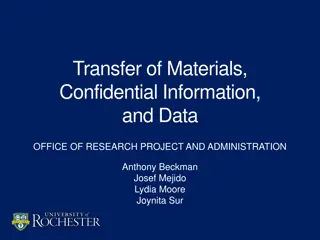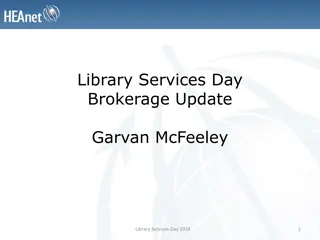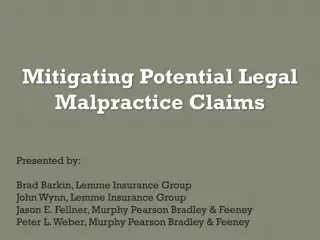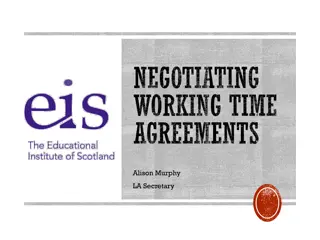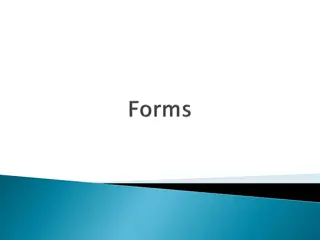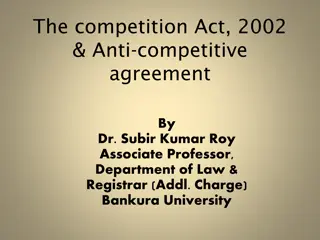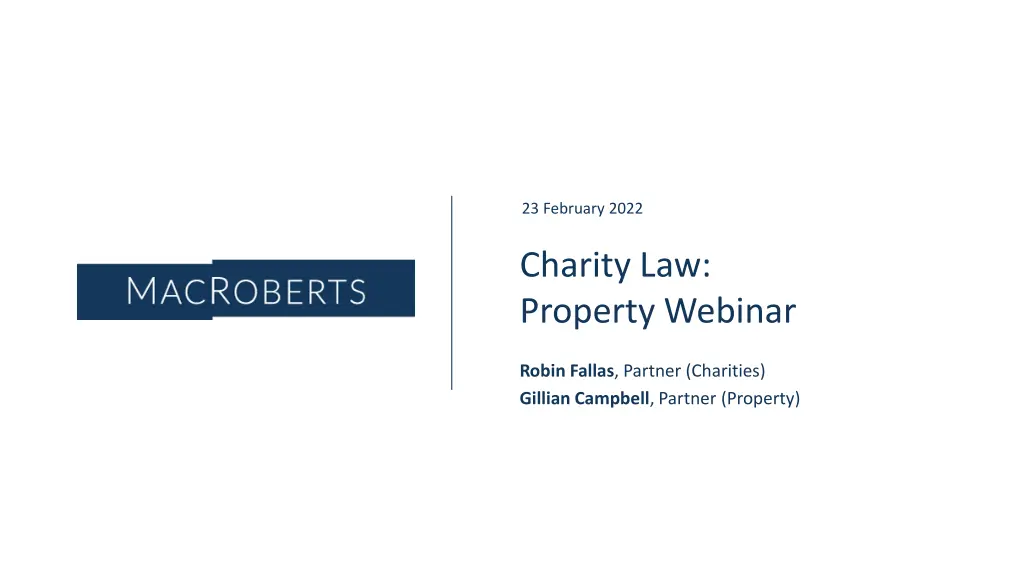
Understanding Property Rights in Charity Law: Leases, Licences, and Agreements
Explore the nuances of property rights in charity law through leases, licences, and various agreements. Learn about the differences between leases and licences, considerations for choosing between them, and factors to consider when granting occupancy rights. Ensure statutory compliance, clarity on responsibilities, and the importance of insurance when dealing with property arrangements.
Download Presentation

Please find below an Image/Link to download the presentation.
The content on the website is provided AS IS for your information and personal use only. It may not be sold, licensed, or shared on other websites without obtaining consent from the author. If you encounter any issues during the download, it is possible that the publisher has removed the file from their server.
You are allowed to download the files provided on this website for personal or commercial use, subject to the condition that they are used lawfully. All files are the property of their respective owners.
The content on the website is provided AS IS for your information and personal use only. It may not be sold, licensed, or shared on other websites without obtaining consent from the author.
E N D
Presentation Transcript
23 February 2022 Charity Law: Property Webinar Robin Fallas, Partner (Charities) Gillian Campbell, Partner (Property)
Granting rights to use your Property What types of agreements can be used? Leases Licences Room Hire Agreements Service Agreements BUT ALWAYS HAVE SOMETHING IN WRITING!
Leases/Licences What is a lease? Real right binding against successors Ability to assign a lease Termination regulated by statute Subject to LBTT What is a licence? Not binding on successors Personal - no right to assign Not protected by statute Not subject to LBTT
When is a licence a lease? When it grants exclusive possession The occupier pays a fee or rent It is of defined premises e.g. a room It is for a fixed period e.g, a week/a month not hourly
Considerations when to use a Lease or a Licence Duration longer term usually a lease short term Licence or short form Lease Premises Exclusive occupier - Lease Others using premises - Licence Occupier Occupier may change - Lease Wish to grant right to specific person or group - Licence
Room Hire & Service Agreements Room Hire Agreements Suitable for short term use of a facility or room Fee payable by hourly rate Occupier limited obligations Service Agreements Suitable for use of space or a desk within a room When providing services eg photocopying/reception/data facilities Can have all inclusive fee or additional fees for extra services
Factors to consider for all occupancy rights Statutory compliance, e.g. fire regulations, health & safety Ability to terminate Be clear on responsibilities Insurance Who Public liability insurance Compliance with regulations maintains/ repairs?






